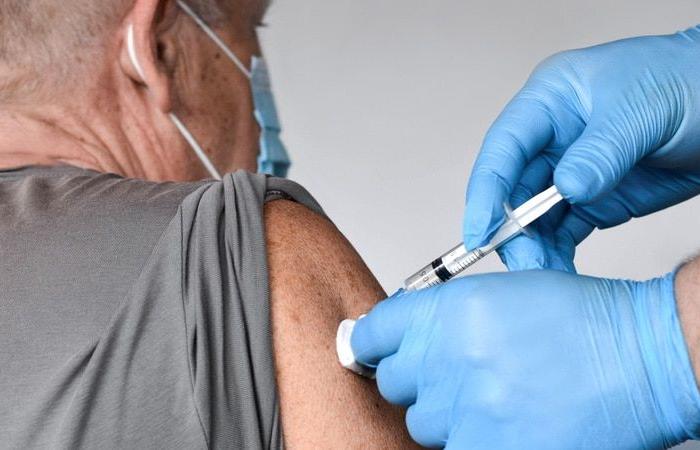How effective is the high-dose influenza vaccine in the population over 65? A first French study reports a reduction in hospitalizations of 24%. There Pre Odile Launay, infectious disease specialist at Cochin hospital in Paris, commented on the results during an online press conference [1,2].
To compensate for immunosenescence
How to improve the immunogenicity and effectiveness of influenza vaccines in the elderly population? Several strategies are possible and among these, the addition of an adjuvant. Thus, in the case of the MF59 adjuvanted vaccine, superior immunogenicity could be demonstrated “but we do not have data from controlled and randomized clinical trials demonstrating greater clinical effectiveness compared to the standard dose”, indicated Odile Launay. The other option is to increase the doses of antigens in the vaccine, so as to create a high dose (HD) vaccine.
Why the need for a high dose vaccine? “The oldest population pays the heaviest price for the flu,” explained Professor Launay. There are 3 reasons for this: an aging immune system, a higher number of comorbidities and increased fragility.” In fact, standard dose influenza vaccines are considered to offer suboptimal protection in the population over 65 years of age, which has led to the development of a quadrivalent vaccine with a dose of antigens 4 times higher than the vaccine. standard anti-influenza (SD). This was introduced in France during the 2021/22 season. A real-life cohort study was conducted to evaluate the effectiveness of the vaccine in the vaccine’s target population, those aged 65 and over. It has just been published in Clinical Microbiology and Infection .
Cohort study
The study included 405,385 people aged 65 and over, not institutionalized, who were matched with 1,621,540 individuals, according to a ratio of 1 to 4. The first received the HD vaccine, the second was vaccinated with the standard dose vaccine. The two groups shared the same characteristics: 77 years old on average, 56% women and 51% were vaccinated in pharmacies. The vast majority had already received an anti-flu vaccination (91%) and 97% had received a complete vaccination schedule against Covid-19. More than half had at least one chronic illness.
The hospitalization rates for influenza – primary endpoint of the study – were 69.5 per 100,000 people/year in the HD group and 90.5/100,000 P/A in the standard dose group, i.e. reduction of 23.3% (95% CI, 8.4–35.8, p = 0.003).
Among the strengths of the study, Professor Odile Launay listed the large number of vaccinated participants aged over 65 – more than 7 million – included in the study, the wide use of PCR flu tests in the event of hospitalization for respiratory infectious syndrome – improving the coding for influenza in the database used – and the consistency of these results with previous studies. There are several limitations, some inherent to the a posteriori method, without randomization of participants, which means that potential bias cannot be excluded – HD vaccine prioritized for the oldest patients or with multiple comorbidities. Others relating to the epidemiological context, with an atypical 2021/22 season with the concomitant circulation of the SARS-Cov2 virus with the flu, underlined Professor Launay.
In conclusion, this first evaluation of effectiveness in France with a high-dose influenza vaccine led to a quarter fewer hospitalizations, results in line with existing data covering 12 influenza seasons. [le vaccin est disponible depuis plus longtemps aux Etats-Unis et en Europe du Nord].
“The very latest data concerning the 2022/23 season – not published – show a reduction in hospitalizations of 27% with the HD vaccine in the population aged 65 and over,” added Odile Launay to support her remarks.
Please note: Due to disagreement over pricing with the State, Sanofi’s high-dose Eflueda influenza vaccine, intended for people over 65, will not be available this year. (Read Withdrawal of the Efluelda influenza vaccine: the Academy of Medicine reacts). However, the laboratory has submitted a file for a trivalent form for a return from the 2025/26 season and is working on the development of mRNA vaccines. Furthermore, a combined influenza/covid-19 vaccine is currently in development.
The study was funded by Sanofi. Several of the authors are employees of Sanofi. Odile Launay declares having links of interest with Sanofi, MSD, Pfizer, GSK, and Moderna.






